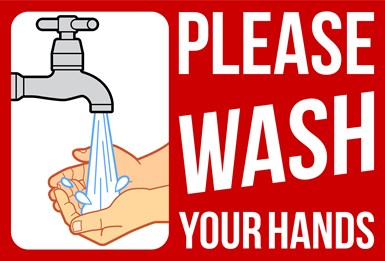Part Cleanliness is Second Nature
While the general public has ramped up its concern about cleanliness, I can’t help but think about shops that have parts cleaning operations that are always concerned about cleaning.
As I write this in mid-March, the world is very concerned about the spread of the coronavirus. Keeping our hands clean is being stressed over and over as the most effective way to stay virus-free.

Shouldn’t we all be concerned about cleanliness all the time?
While the general public has ramped up its concern about cleanliness, I can’t help but think about shops with parts cleaning operations that are always concerned about it. They constantly consider cross-contamination, recontamination, whether their customers’ parts are clean enough (meeting specifications) and sometimes if they are too clean.
Although most people try to prevent germs from spreading, especially with a pandemic on the rise, many have misconceptions about how to do so. They may wash their hands, but not thoroughly, or perhaps don’t use enough soap. The same holds true for parts cleaning processes. And there are some fallacies within the parts cleaning industry as well.
For example, according to LPW in “Cyclic Nucleation System Safely Cleans Complex Parts,” ultrasonic cleaning often cannot clean in the crevices of a small, precision-machined part. Did you know that? However, the company says its cyclic nucleation process (CNp) can do the job using only water. The technology consists of a vacuum-flood cleaning method in which gas bubbles are formed on all surfaces, including inside small holes and capillaries. As the bubbles implode when the vacuum is suddenly removed, they generate a pressure wave that cleans the entire surface of the parts. Be sure to visit the article online to watch a video that illustrates how the process works.
Although effective for some cleaning applications, CNp isn’t for all. Some parts need a chemical to rid them of all the oil and dirt that builds up during certain machining processes. I talked to Cox Manufacturing’s Mike Petrusch and Kyzen Corp.’s Joe McChesney to get the scoop about how these two companies work together to figure out the best chemistry to clean Cox’s customers’ parts in a vacuum vapor degreasing system in “The Right Solvent Creates the Cleanest Parts.”
My hope is that by the time you read this, the coronavirus will no longer be spreading and “lockdowns” have ended. I also hope most people are still frequently washing their hands just as machine shops are continuously finding the best ways to clean parts and keep them clean.
Related Content
-
Sita’s CleanoSpector Measures Part Cleanliness
PMTS 2023: Handheld measuring device checks for cleanliness of parts to assure product quality as well as prior to follow-up processes.
-
Parts Cleaning Sector Shifts Energy Toward Regulatory Changes
With changes in EPA regulations regarding the use of some popular cleaning fluids, cleaning suppliers and end users are readjusting business strategies and/or cleaning processes to meet new requirements.
-
PMTS 2023 Product Preview: Parts Cleaning
Learn about some of the latest parts cleaning solutions that will be on display at PMTS 2023.















.jpg;maxWidth=300;quality=90)
